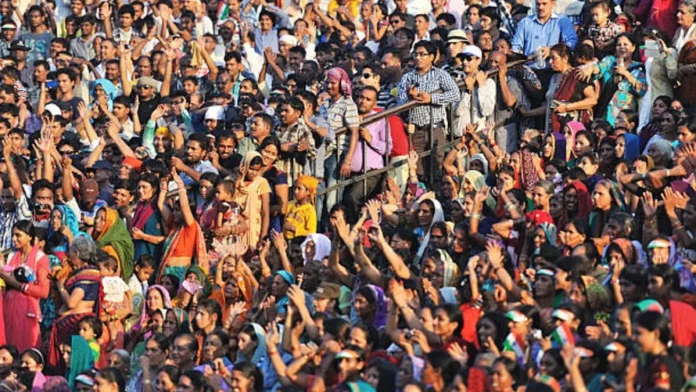NEW DELHI, June 12: India’s fertility rate has dropped to 1.9, falling below the replacement level of 2.1 for the first time, according to a new report released by the United Nations Population Fund (UNFPA). The findings have sparked debate over the country’s demographic future, as economic instability and evolving societal trends reshape reproductive choices.
Despite being the world’s most populous nation with an estimated 1.46 billion people, the UNFPA warns that India could face long-term population decline if current trends persist.
The UN agency conducted a wide-reaching survey across 14 countries — representing nearly 37% of the global population — to assess changing fertility patterns. In India, more than 1,000 adults were surveyed, revealing that economic concerns are the most significant deterrent to larger families.
Respondents cited financial constraints, job insecurity, high housing costs, and lack of quality childcare as primary reasons for delaying or limiting childbirth. These pressures have made it increasingly difficult for young couples to plan for multiple children, reshaping traditional family norms across urban and rural regions alike.
“Today’s young Indians are making pragmatic decisions about family size, prioritizing economic stability and personal well-being over societal expectations,” the report stated.
Beyond finances, the report pointed to health-related challenges such as rising infertility, limited access to reproductive healthcare, and chronic illnesses as major factors influencing family planning.
Additionally, global instability — including political unrest, environmental degradation, pandemics, and climate crises — has heightened anxieties among prospective parents about the future their children would inherit.
The decline in fertility has raised alarms among demographers and policymakers. While India’s population is expected to peak at around 1.7 billion in the coming decades, the sustained drop in birth rates could eventually lead to a shrinking workforce, increased dependency ratios, and pressure on social welfare systems.
Experts urge proactive policy measures to address economic insecurity, improve healthcare access, and provide better support for working families.
“India’s demographic dividend is narrowing,” the report warns. “To secure a sustainable future, the country must adapt its economic and social systems to meet the needs of a changing population.”
As the nation prepares for this demographic transition, the conversation around fertility is shifting from population control to population support — ensuring families have the resources they need to grow, if and when they choose to.

